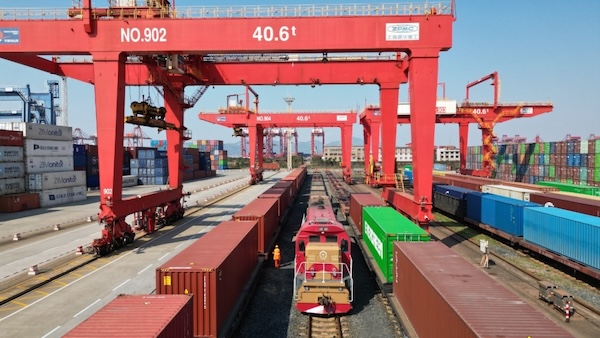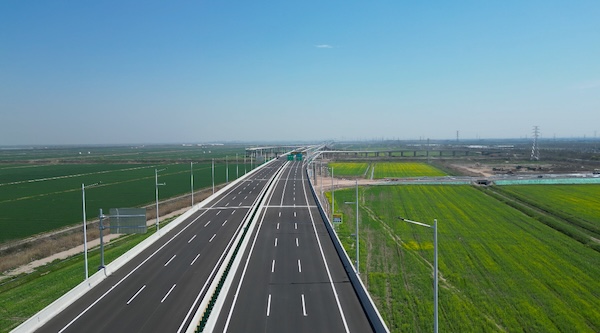Ningbo taps market for blue carbon credits
Ningbo, a coastal city in East China's Zhejiang province, brings into full play the potential of its coastal ecosystems to achieve carbon neutrality.
On Tuesday, about 2,340 metric tons of blue carbon credits were auctioned off at the price of 106 yuan ($15.27) per ton in the city's Xiangshan county, which was also China's first blue carbon credit auction.
The concept of "blue carbon" was introduced in the report Blue Carbon: The Role of Healthy Oceans in Binding Carbon by the UN Environment Programme (UNEP) in collaboration with the UN Food and Agriculture Organization (FAO) and the UN Educational, Scientific and Cultural Organization (UNESCO) in 2009.
It refers to carbon that is absorbed from the atmosphere and stored in coastal and marine ecosystems. Mangroves, tidal marshes and seagrasses are recognized as three major blue carbon ecosystems as both their plants and sediment below can sequester and store large quantities of carbon.
The blue carbon credits are what the ecosystems generate based on the quantity of carbon they absorb and store. The credits are sold to buyers that want to offset their carbon emissions.
The blue carbon credit market is relatively new in China. To date, only five blue carbon deals have been made in the country.
The blue carbon credits sold on Tuesday are generated by three varieties of algae – kelp, seaweed and sea lettuce - at Xihu Port in Xiangshan. More than 20 enterprises and institutions from around the nation attended the auction, and Zhejiang Yiduan Precision Machinery Co Ltd, a machine manufacturer in Ningbo, won the bidding wars.
Wang Yuan, a manager of the company, said that as China has completed the registration and trading systems for the relaunch of the China Certified Emission Reduction program, companies can now reduce carbon emissions using carbon credits. The blue carbon credits that the company bought will be used to offset its carbon emissions.
Perched on the East China Sea, with a coastline of 1,562 kilometers and home to a 9,758-square-kilometer ocean and 2,313-square kilometer of wetlands, Ningbo has strong potential for the development of blue carbon ecosystems.
The city released a plan to implement the strategy of reaching peak carbon emissions and carbon neutrality last June. According to the plan, it would improve blue carbon ecosystems and tap the market of blue carbon credits.
In January, local authorities further emphasized the importance of developing forest carbon and blue carbon.
Ningbo's first blue carbon pilot project was reviewed and accepted on Feb 9. The project, which includes research, evaluation and accounting for the carbon credits of the south bank of Hangzhou Bay, was recognized by experts.
"It will serve as a model for the development of blue carbon projects in coastal cities across the country," said Ding Dewen, an academician at the Chinese Academy of Engineering.

 Ningbo seabird project seeks international volunteers
Ningbo seabird project seeks international volunteers  Jakub's journey: From shipyard to sea
Jakub's journey: From shipyard to sea  Badminton Asia COO applauds Ningbo
Badminton Asia COO applauds Ningbo 


